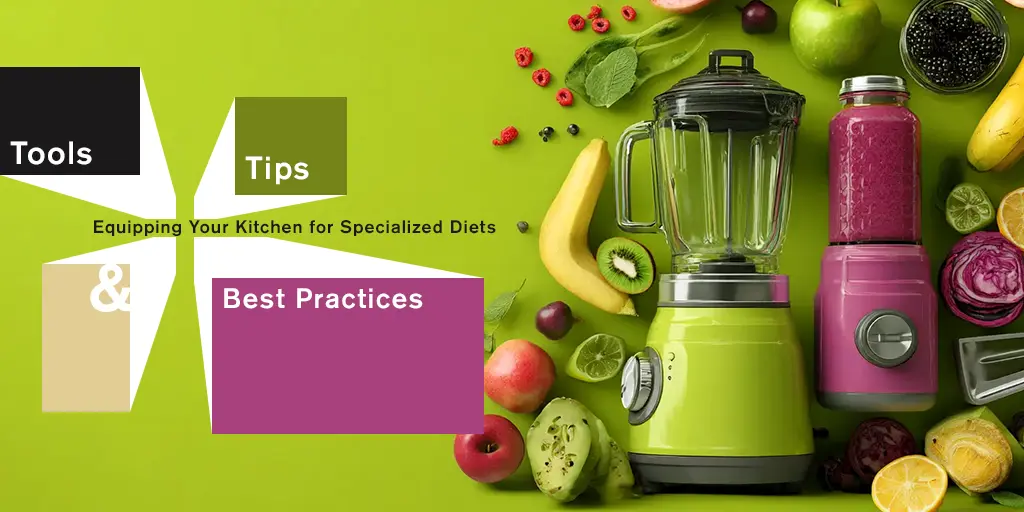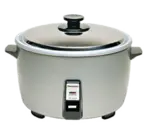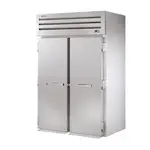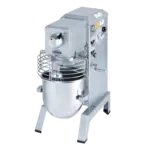
Equipping Your Kitchen for Specialized Diets: Tools, Tips, and Best Practices
In today’s culinary world, catering to specialized diets is no longer a niche—it's a necessity. From gluten-free and allergen-free meals to vegan and keto options, customers are increasingly seeking restaurants and catering services that accommodate their dietary needs. Ensuring food safety and quality in these kitchens begins with the right equipment, but it also requires thoughtful practices and workflow organization. In this article, we’ll explore essential equipment for specialized diets, practical tips for maintaining allergen safety, and best practices to set up an efficient, compliant kitchen.
Why Specialized Diet Kitchens Matter
Food allergies, gluten intolerance, and other dietary restrictions affect millions of people worldwide. A single cross-contact incident can not only harm a customer but also damage a business’s reputation. Establishments that can confidently offer allergen-free, gluten-free, or otherwise specialized meals stand out in a crowded market. Proper equipment, hygiene practices, and kitchen workflows are the foundation for delivering safe, high-quality meals consistently.
Essential Equipment for Specialized Diets
Equipping a kitchen to handle specialized diets involves more than just replacing ingredients—it requires dedicated tools, appliances, and storage solutions to prevent cross-contamination. Here are some of the most important categories:
1. Allergen-Free Kitchen Tools
Investing in allergen-free kitchen tools is crucial for preventing cross-contact. This includes color-coded cutting boards, knives, spoons, and spatulas designated for specific allergens. For instance, using a purple cutting board exclusively for gluten-free food ensures that flour or other gluten-containing ingredients never touch it. CKitchen offers a variety of color-coded utensils and smallware that help maintain strict separation between allergen-containing and allergen-free foods.
2. Dedicated Food Preparation Equipment
Beyond small tools, dedicated food processors, mixers, and prep stations are essential. For example, a separate mixer for gluten-free dough ensures that traces of wheat never contaminate your products. When space allows, consider creating entirely separate prep zones for allergen-free meals. This equipment can be strategically placed to reduce workflow congestion and maintain efficiency.
3. Commercial Refrigeration for Allergen Safety
Proper storage is another key factor. Commercial refrigeration units dedicated to allergen-free ingredients prevent cross-contamination from stored products. Label shelves clearly, and consider separate refrigerators or clearly marked sections for gluten-free and allergen-free items. CKitchen provides commercial refrigeration units suitable for both small and large-scale operations.
4. Allergen-Safe Smallware
Smaller tools and utensils matter just as much as big equipment. Allergen-safe smallware, including separate measuring cups, mixing bowls, and tongs, ensures that even minor food prep steps don’t compromise safety. Assigning tools to specific dietary requirements and storing them properly is a simple but highly effective practice.
5. Specialized Cooking Stations
For high-volume kitchens or catering operations, dedicated cooking stations for gluten-free, nut-free, or vegan meals can streamline workflow and reduce mistakes. These stations can include separate ovens, stovetops, and fryers to completely isolate allergen-free meals from other kitchen operations.
Best Practices for Allergen-Free and Specialized Diet Kitchens
Having the right equipment is only part of the equation. Implementing rigorous best practices ensures your equipment and processes work together to maintain safety.
1. Color-Coding Systems
A robust color-coding system reduces human error. Assign specific colors for utensils, cutting boards, and prep containers based on dietary restrictions:
- Purple = Gluten-free
- Green = Vegan
- Blue = Dairy-free
- Red = Meat
This simple practice helps staff quickly identify which tools to use for each preparation area.
2. Staff Training
Even the best equipment is ineffective without trained staff. Conduct regular training sessions covering:
- Cross-contact prevention
- Cleaning and sanitizing procedures
- Reading labels and ingredient verification
- Proper use of specialized equipment
Ongoing training keeps allergen safety top of mind for your team.
3. Workflow Separation
Design your kitchen layout to physically separate allergen-free prep areas from general food prep. Use dedicated sinks, cutting boards, and utensils, and, when possible, establish time-based separation (e.g., preparing allergen-free dishes first in the day before other meals). CKitchen’s modular equipment solutions make it easier to adapt workflows without sacrificing efficiency.
4. Labeling and Organization
Clear labeling of ingredients, prep stations, and storage units prevents mistakes. Use labels that indicate dietary restrictions, expiration dates, and allergen information. Consistent labeling allows any staff member to quickly verify safe usage and storage.
5. Sanitation and Maintenance
Maintain strict cleaning schedules for both equipment and surfaces. All equipment used for allergen-free prep should be cleaned and sanitized separately from general-use equipment. CKitchen’s durable stainless steel appliances and smallware are easy to clean, ensuring compliance with safety standards.
Tips for Efficient Operations in Specialized Diet Kitchens
Efficiency doesn’t have to be sacrificed for safety. With strategic planning and the right tools, kitchens can handle diverse dietary needs smoothly.
- Plan Menus Around Equipment: Design menu items that minimize cross-contact risk while maximizing equipment use. For instance, cook gluten-free items in batches using dedicated appliances to reduce cleaning downtime.
- Use Modular Equipment: CKitchen offers modular setups that allow kitchens to expand or reconfigure prep stations as needed. This flexibility is ideal for seasonal menu changes or pop-up events.
- Invest in Technology: Consider labeling scanners, inventory tracking software, and IoT-enabled refrigeration to streamline operations and reduce human error.
CKitchen’s Offerings for Specialized Diet Kitchens
CKitchen provides a wide range of equipment that supports allergen-free, gluten-free, and other specialized diet preparations:
- Color-coded utensils and smallware to prevent cross-contact
- Dedicated food processors and mixers for safe ingredient prep
- Commercial refrigeration units suitable for separate storage of allergen-free products
- Modular prep stations to create efficient, separate workflows
By leveraging CKitchen’s products, restaurants, catering services, and food production facilities can confidently serve specialized diets without compromising safety or quality.
Final Thoughts
Catering to specialized diets is more than a trend—it’s a commitment to your customers’ health, safety, and satisfaction. Equipping your kitchen with the right tools, implementing rigorous best practices, and optimizing workflow are the pillars of a safe and efficient allergen-free or gluten-free operation. From allergen-safe utensils and smallware to dedicated food prep equipment and commercial refrigeration, CKitchen offers everything you need to build a kitchen that meets the highest standards.
By combining the right equipment with proper staff training, workflow organization, and sanitation practices, you can confidently serve a diverse clientele, protect your business reputation, and embrace the growing demand for specialized diet options.





